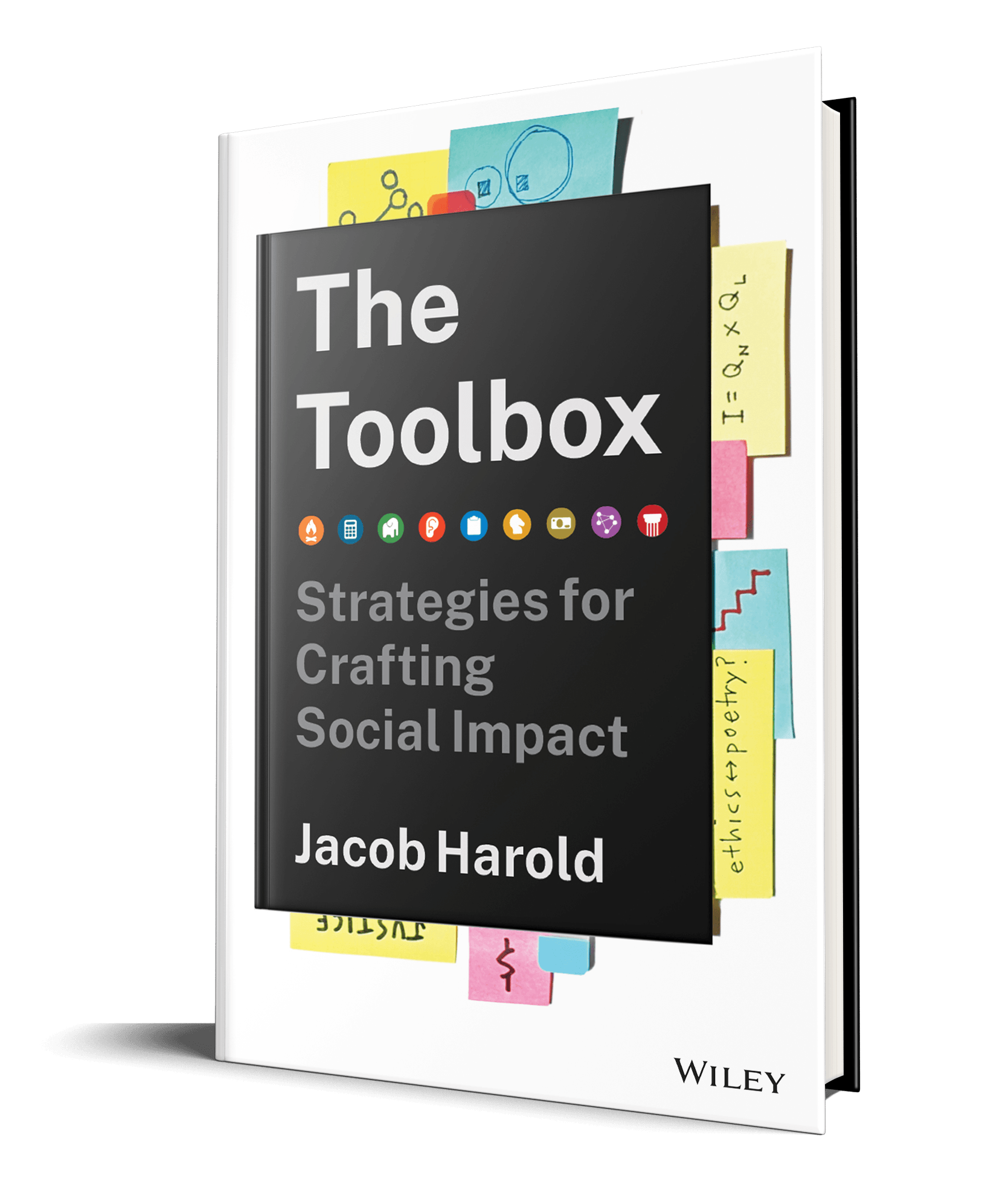
THE
TOOLBOX
In The Toolbox: Strategies for Crafting Social Impact, celebrated nonprofit executive Jacob Harold will help you transform your corner of the world with this expert guide to doing good in the 21st century.
You’ll explore nine tools that have driven world-shaking social movements and billion-dollar businesses—tools that can work just as well for a farmers market or fire department or small business.
ORDER NOW
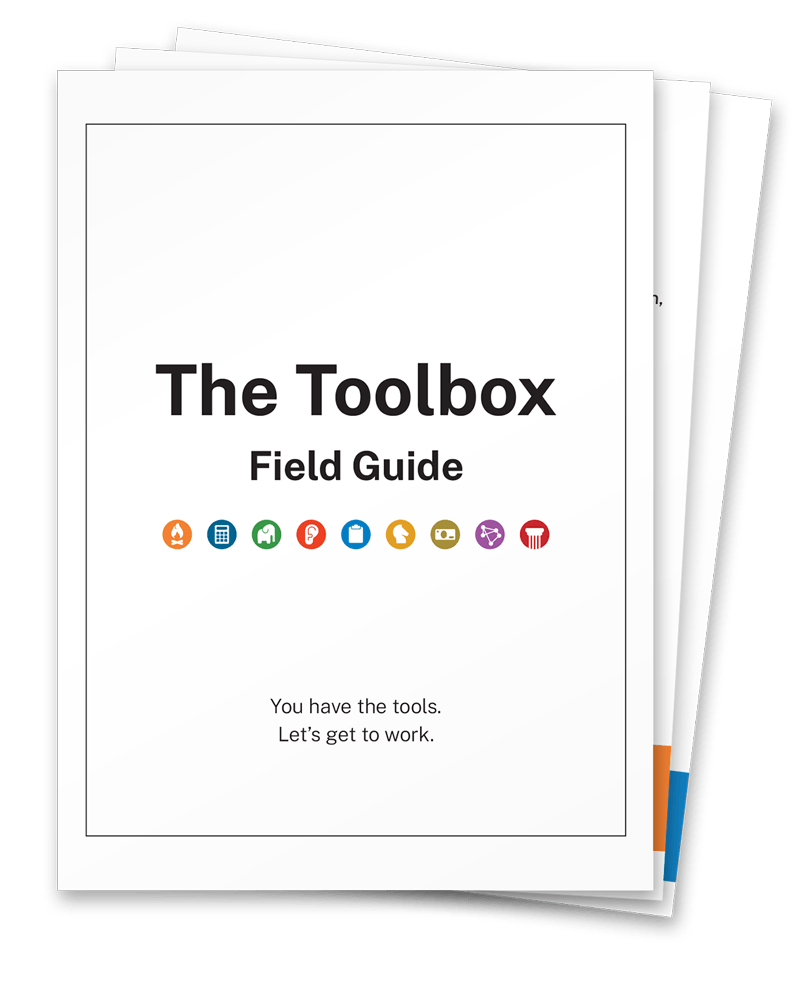

New Title
The Toolbox Field Guide
Designed to help turn the nine tools into action, The Field Guide reviews key takeaways from each chapter and offers exercises to help apply the ideas in the book to your work. Perfect for a workshop with your network, nonprofit, business, or agency. Contact us for more information.
FIeldGuide Bonus
Thank you for reaching out about The Toolbox Field Guide. We'll be in touch soon!
Please try again later.


New Title
The Toolbox Field Guide
Designed to help turn the nine tools into action, The Field Guide reviews key takeaways from each chapter and offers exercises to help apply the ideas in the book to your work. It's a great way to engage your network, staff, or community. Contact us for more information.
Contact Us
Thanks for reaching out about The Toolbox Field Guide. We'll be in touch soon!
Please try again later.
The nine tools that can help us build the better world we seek:
- Storytelling is the human impulse to understand the world through narrative.
- Behavioral economics offers insights into human behavior as it is, not as we wish it to be.
- Design thinking puts the user at the center of any process or challenge.
- Community organizing
is the art of building people power.
- Mathematical modeling is the essential practice of putting numbers to our assumptions.
- Game theory is a rigorous way to align our decisions with those of other people.
- Markets represent the primary mechanism of resource allocation in our world.
- Complex systems science teaches how the whole can be greater than the sum of its parts.
- Institutions form the essential infrastructure of our society.
“Jacob Harold is reinventing social change strategy. In
The Toolbox, he's taken centuries of political, military, business, and non-profit strategy and brought them together. The result: a renewed framework worthy of today's complex and interconnected moral crises. Our world needs you to read it and take action."
Minh-Thu Pham
Co-Founder, New American Voices
"Jacob Harold's book is the one resource every socially conscious (or social-minded) leader needs. From strategy to operationalization, he masterfully describes how to deliver impact whether your role is in business, government, or the nonprofit/social sector."
Steve Goodall
Former CEO, J.D. Power
"The Toolbox makes the complexity of changing the world elegant, not complicated. This is the new handbook for social change."
Phil Radford
Former CEO, Greenpeace USA and Founder, Champion.us
"A whimsical, humorous, intelligent, high-level romp through various strategies for achieving social change."
Paul Brest
Former Dean and Professor Emeritus, Stanford Law School and former President, William and Flora Hewlett Foundation
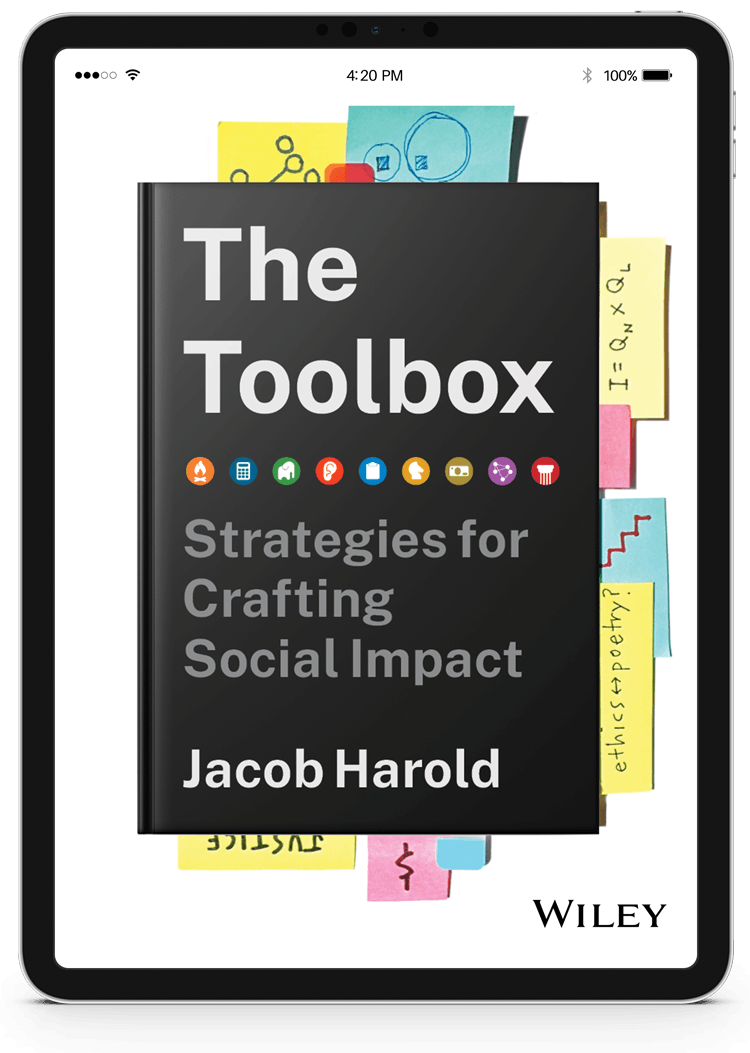

Ready to get started?
Download a Free Preview
Contact Us
Thank you for filling out the form.
You will be sent to the download page now.
Please try again later.
Mathematical modeling can help us plan for the future and learn from the past. The rigor of math, applied to social change, ensures clarity, keeps us honest, and helps us imagine what is possible.

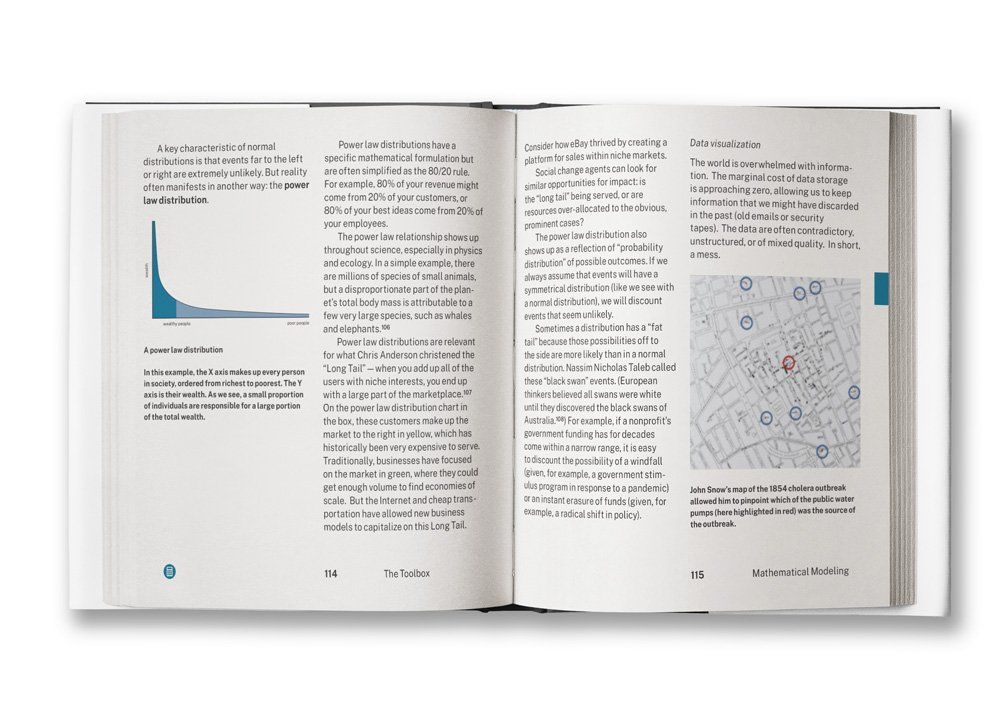
From the sweep of history to the sweep of a neighbor’s stoop is a continuum of change. You sit on that continuum. Your choices help carve the contours of history. We’ll explore how we translate our ambitions—however modest or grand—into action.

The world will not easily yield to our visions of perfection. But we are agents in the story of human history. The work of social change is a concrete way to participate in the cocreation of that story.
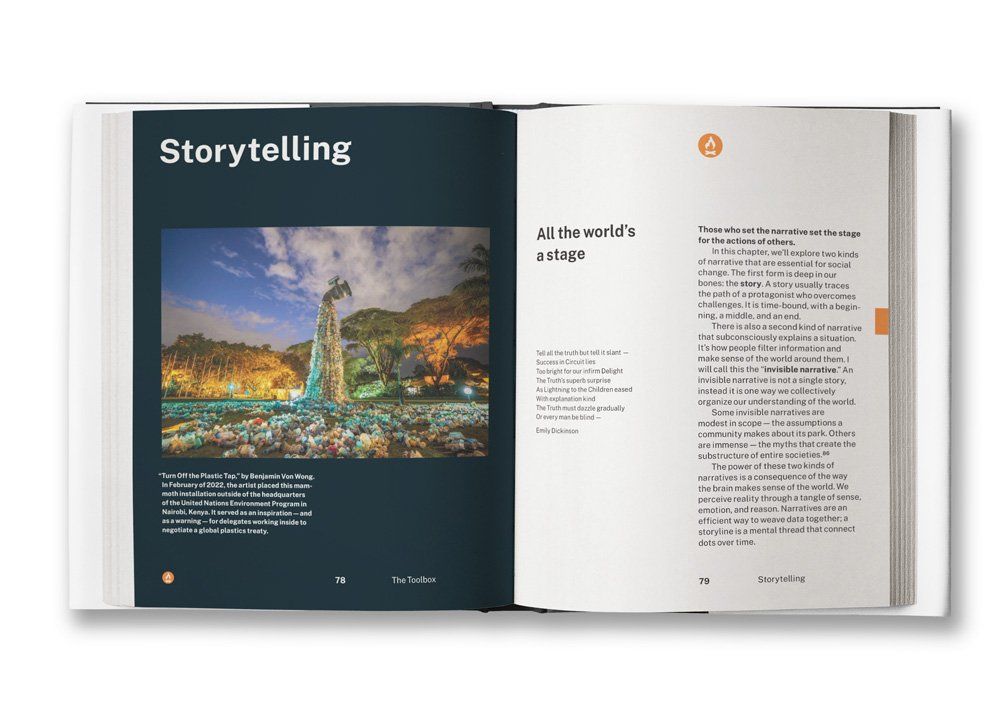
From the Introduction to The Toolbox
“Let’s check to see
if the ground is okay.”
Kids tumble, knees scrape. As a toddler, when I’d trip and fall, my mother would scoop me up. She’d give me a kiss and a hug. Then she would turn our shared attention to the spot where I fell. My mother would kneel, place her hand upon the earth, and ask us to show compassion to a scrap of land: “Let’s check to see if the ground is okay.”
In part, this was a young parent’s practical trick to distract a crying child from passing pain. But it was more.
My mother’s strategy manifested a deeper belief: kindness is infinite. We have enough kindness for a world that has held us up; even enough for a world that has hurt us. That kindness powers the greatest of human impulses: to serve, to build, to love, to witness. It drives us to seek a better world—to multiply justice and joy. But change is hard. The world does not easily yield to our visions of perfection.
How do we make change?
There are no easy answers.
Instead, there are tools.
